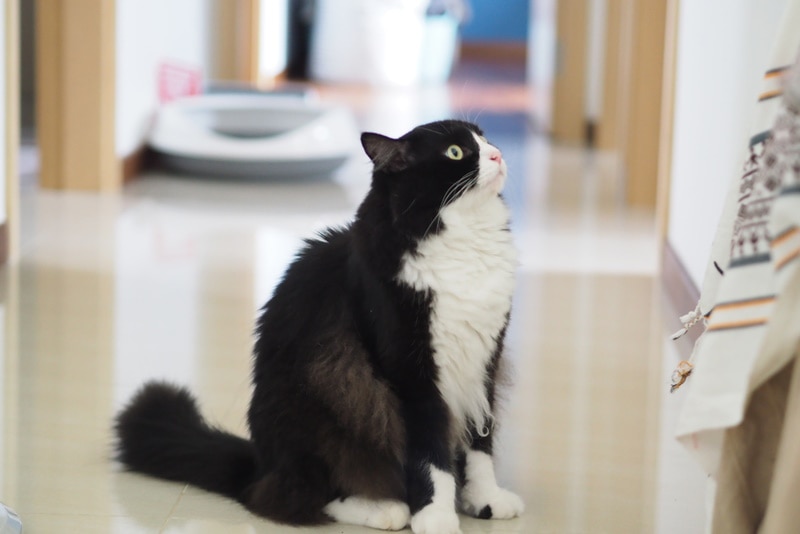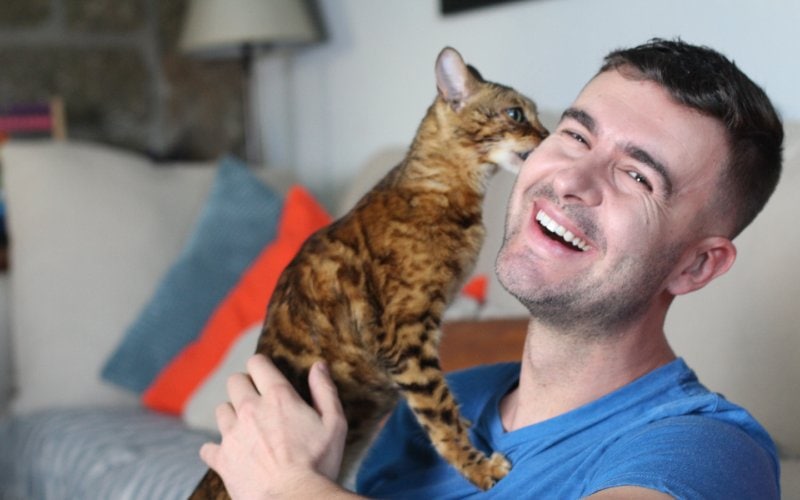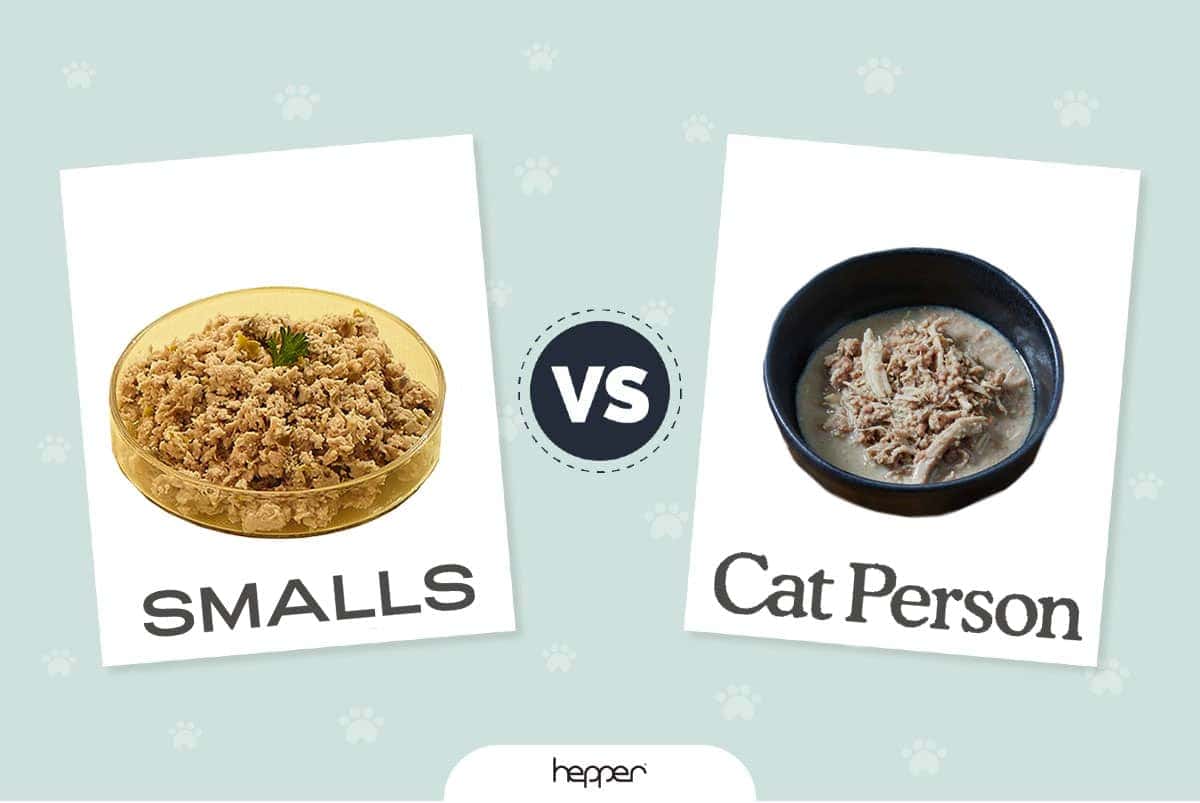Can Cats Eat Goldfish Crackers? Vet Approved Facts & Safety Guide
Updated on
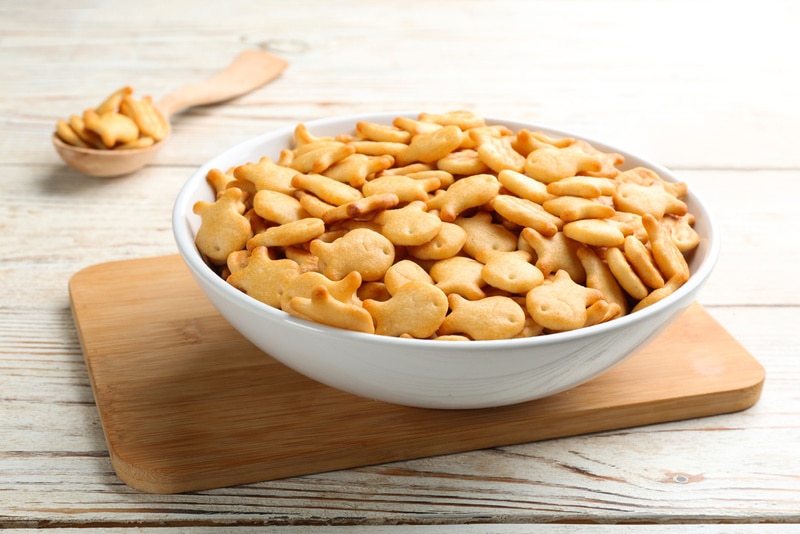
Click to Skip Ahead
Cats can be finicky when it comes to food. Some cats may show interest in human food, and some couldn’t care less about what their human is eating. Cats are obligate carnivores and require the appropriate balance of high proteins, moderate fat, and low carbohydrates. Still, some cats may show interest in your snack, such as Goldfish crackers, but can cats eat them? The answer is no, cats should not eat Goldfish crackers due to possible toxic ingredients. They also hold no nutritional value for cats.
Let’s dive deeper into this subject and learn more about safe and healthy treats you can give your feline pal and what to do if your cat eats Goldfish crackers.
What Are Goldfish Crackers?
Goldfish crackers have been available in America since 1962. They were invented by Oscar Kambly, a Swiss biscuit manufacturer and discovered by Pepperidge Farm founder Margaret Rudkin, during a trip to Switzerland. Margaret saw the potential in their Goldfish crackers and reached an agreement with the Kambly company to make and sell Goldfish crackers in the United States. The rest is history.
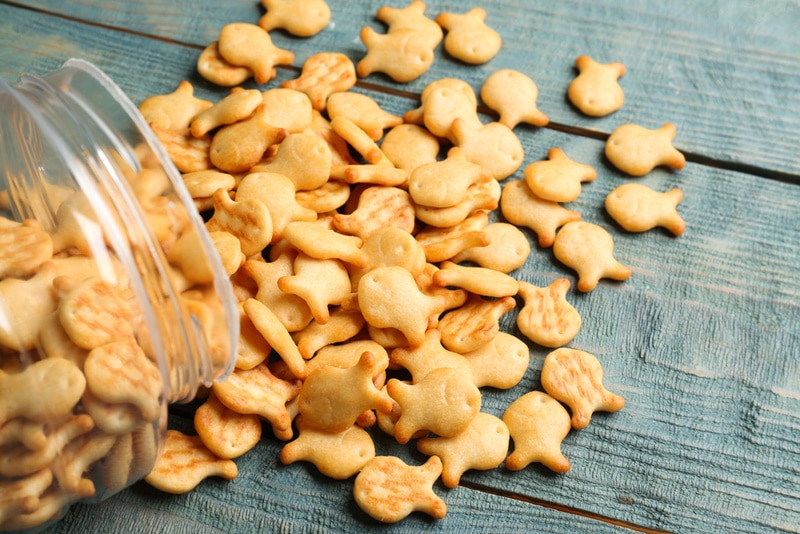
What’s in Goldfish Crackers?
Goldfish crackers are considered a slightly healthier option for humans because they are baked, contain no trans fat, and are made with real cheese. They contain only 5 grams of fat and roughly 140 calories per 30 gram (55 piece) serving, and they also contain calcium and potassium.
Other ingredients in these fish-shaped crackers are enriched wheat flour, vegetable oils, salt, spices, wheat, and milk. Some other spices included are onion powder and paprika, which is where some of the trouble plays a factor for cats. Goldfish crackers contain a small amount of onion powder, which can still be toxic if ingested, even in relatively small amounts.
What Flavors Are Available in Goldfish Crackers?
The most common flavor is cheddar cheese, but surprisingly, the brand has other flavors, including pizza, vanilla cupcake, pretzel, and Parmesan, to name a few. Most, if not all, Goldfish cracker ingredients contain onion powder. For this reason alone, we cannot recommend these crackers as a healthy and safe snack for cats.

Can Cats Eat Goldfish Crackers?
As mentioned, cats should not eat Goldfish crackers due to unsafe ingredients, such as onion powder. Onion powder is essentially a dehydrated onion and can be more toxic than raw onion if ingested, due to the smaller amounts needed to cause toxicity. Goldfish crackers contain only a small amount of onion powder, but again, this can be toxic to cats. Onions and onion powder can damage your cat’s red blood cells and cause anemia, and the risks of feeding them even in small amounts is not worth it for your feline friend.
Another reason to avoid giving these crackers to cats, regardless of the flavor and unsafe ingredients, is they are high in sodium and carbohydrates, which your cat simply does not need. They also hold no nutritional benefit for cats. Remember that cats require a balance of high protein, moderate fat, and low carbs, and these crackers offer none of those.
What Should I Do if My Cat Eats Goldfish Crackers?
For starters, it’s important to keep unsafe items up and away from your cat, but sometimes, accidents happen. Suppose you left an opened bag of Goldfish crackers on your coffee table and your cat decided to try a few before you could stop them. As long as your cat did not eat the entire bag, don’t panic.
If they have just eaten one or two they are unlikely to suffer from any adverse effects. If you are concerned, the first thing to do is to call your veterinarian and inform them of what happened, and roughly how much they have eaten, so they can advise you whether any action needs to be taken. The Pet Poison Helpline is also a source of help and advice. Signs may not occur immediately and may take up to 12 hours to appear. Signs to look for include:
- Drooling
- Nausea
- Vomiting
- Diarrhea
- Oral irritation
If anemia develops due to onion toxicity, signs can vary depending on the severity and include:
- Lethargy/depression
- Dark urine
- Weakness
- Shallow breathing
- Yellowing of the skin or whites of the eyes
- Collapse
- Seizures
- Death
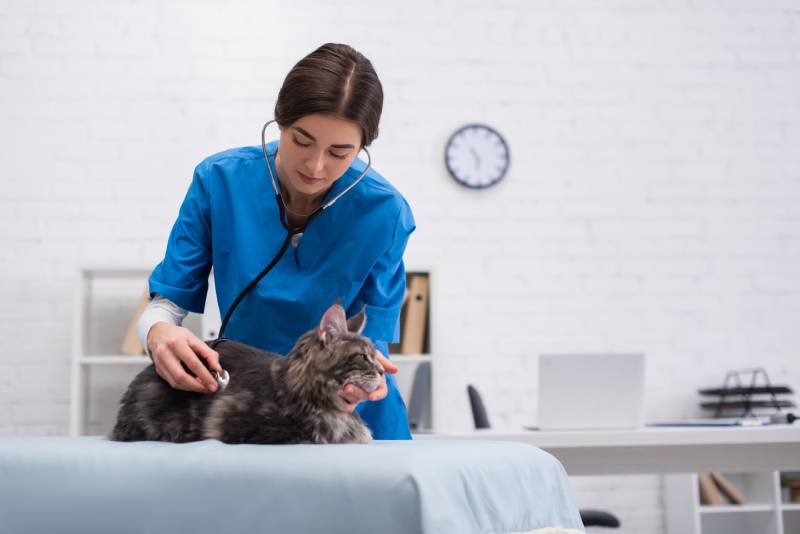
What Healthy and Safe Human Snacks Can I Give My Cat Instead?
If you want to share human foods with your kitty, there are plenty of safe and healthy treats you can give that will make most cats happy. You can try to give fresh fruits, but cats cannot taste sweet and will likely show no interest.
Be aware that dietary additions such as these are not suitable for all cats, for example if your cat has a health condition and is on a prescription diet. Always check with your vet before giving new foods if you are at all unsure. Nonetheless, here are a few generally healthy and safe snacks for cats.
- Cooked chicken, beef, or turkey (in small amounts)
- Canned or cooked fish (no bones)
- Cooked eggs—never raw
- Fresh cucumber
- Cantaloupe
- Steamed broccoli
The safest way to provide your cat treats is to buy treats made specifically for cats. That way, you can rest assured the ingredients are safe and offer nutritional value.
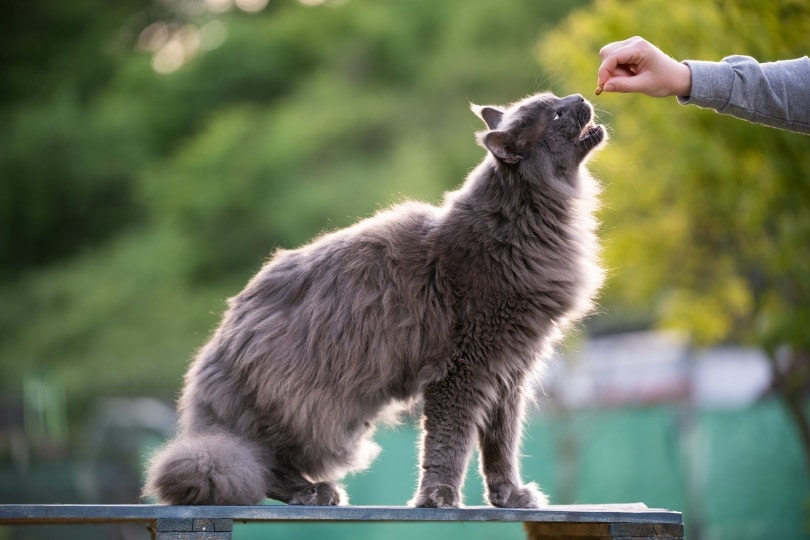
Final Thoughts
Contrary to what you’ll find on the Internet, Goldfish crackers are not a safe treat for your cat. For safety, if you want to give your cat something processed, like Goldfish crackers, it’s vital to read the ingredients label first to ensure no toxic ingredients exist in the product. Goldfish crackers contain onion powder, and that alone means a big fat no for your cat.
It’s best to stick with unprocessed treats and offer treats made for cats. Cats are obligate carnivores and love meat, and it’s safe to give small amounts of chicken, beef, turkey, or fish, as long as it’s cooked, for a special treat.
Featured Image Credit: New Africa, Shutterstock


